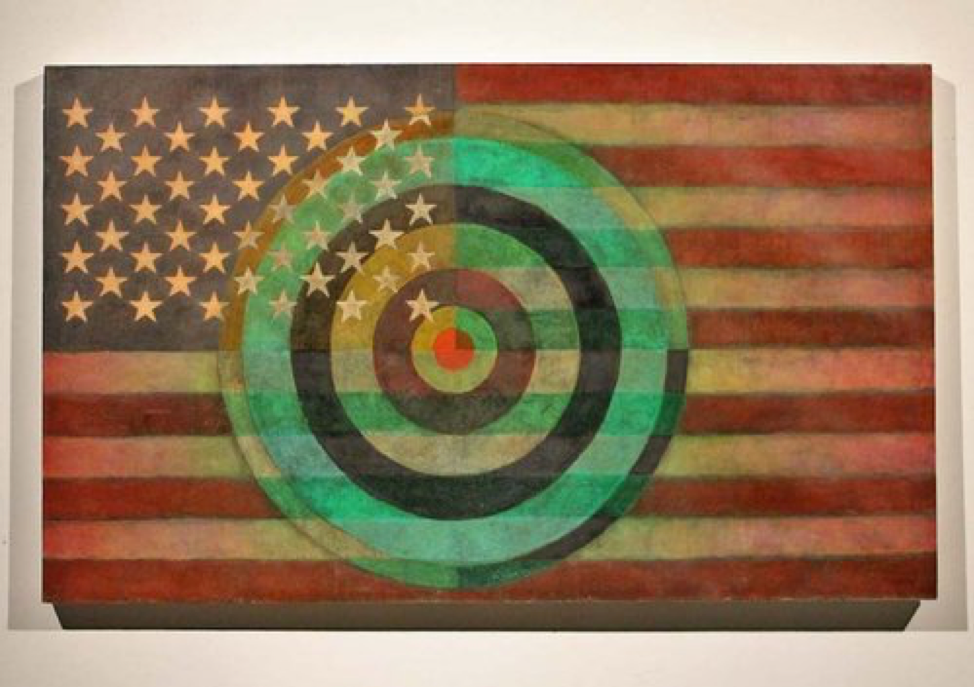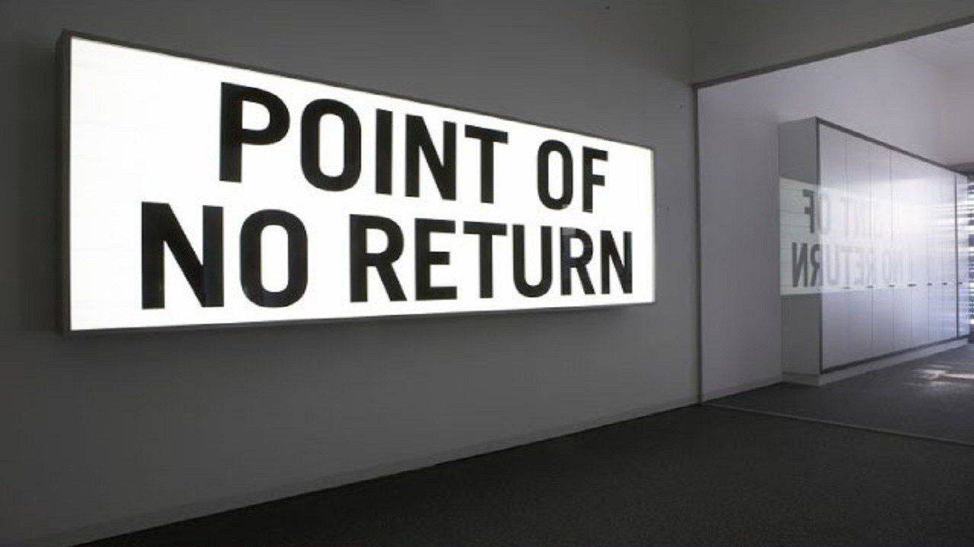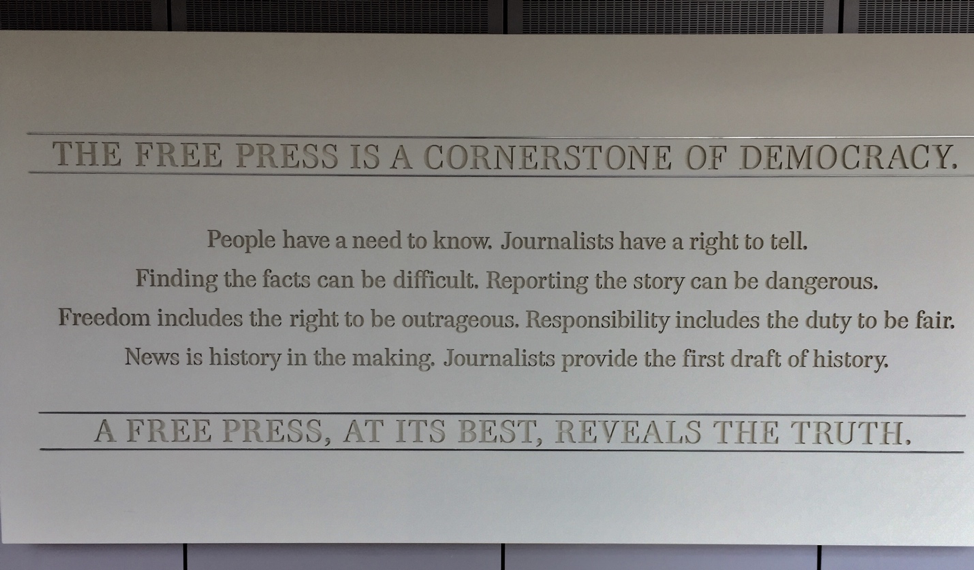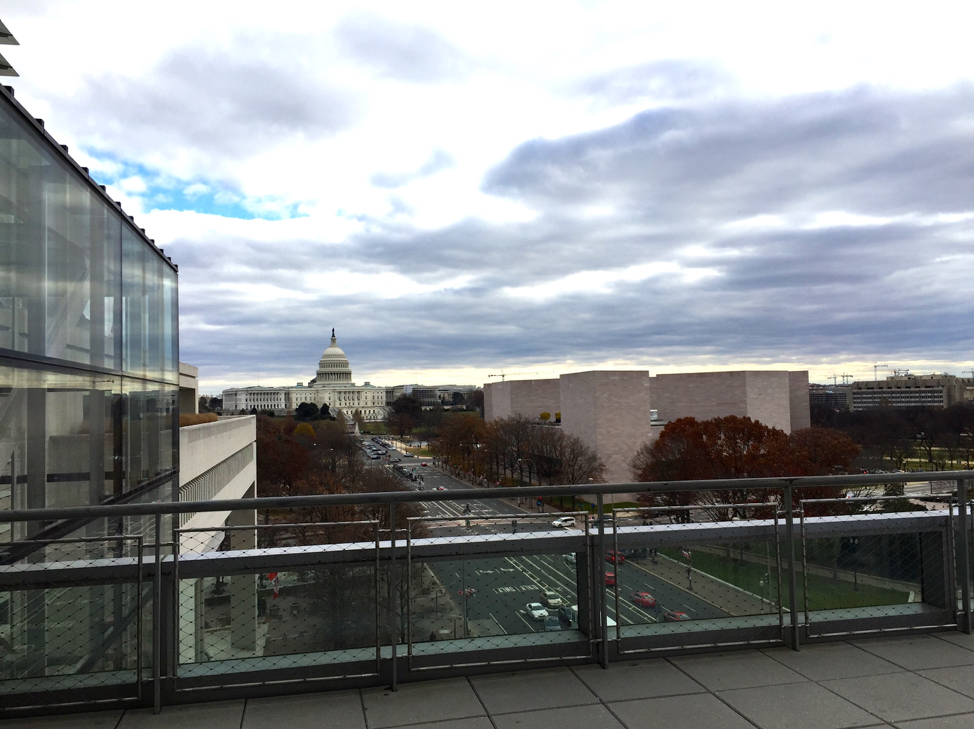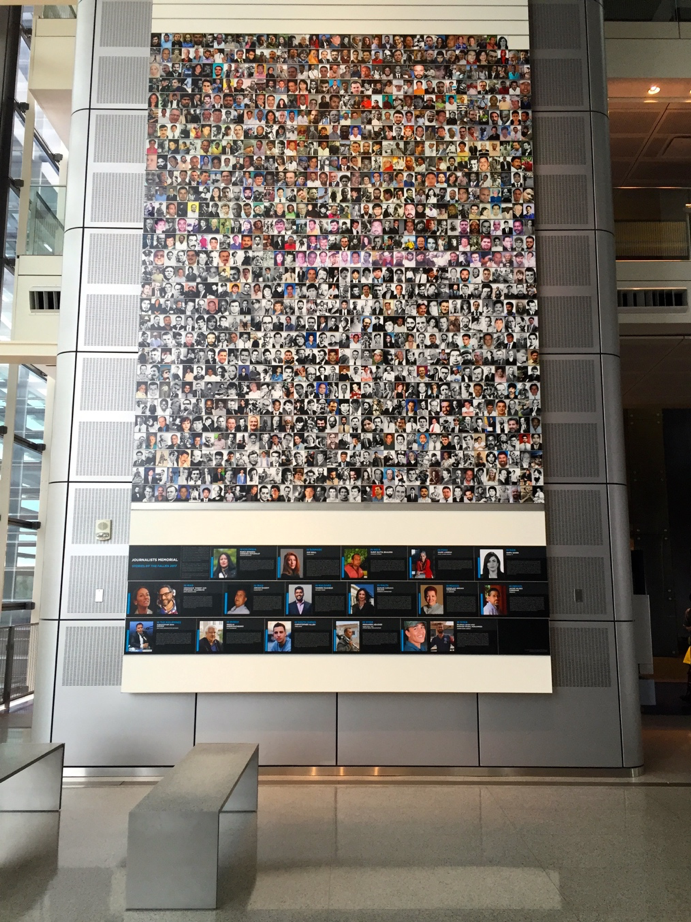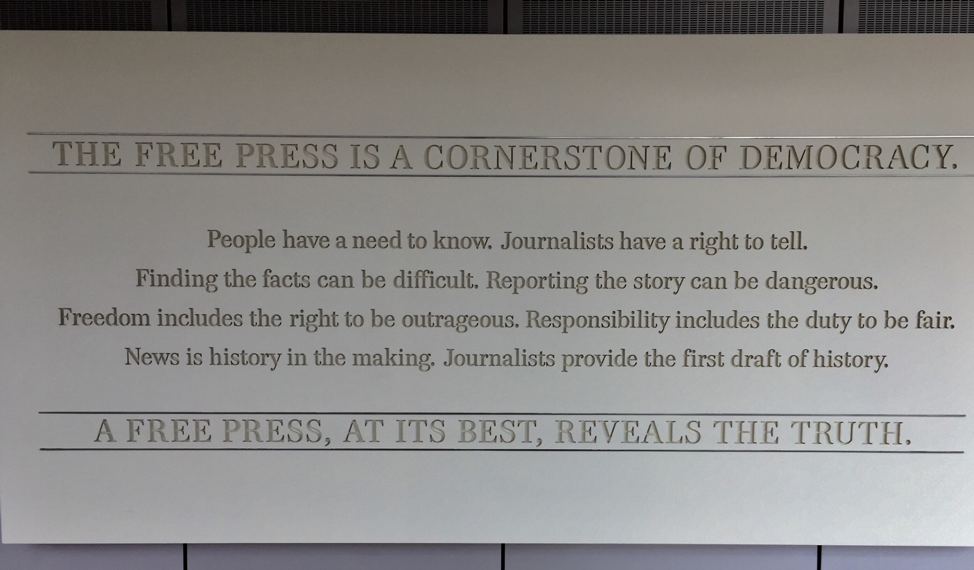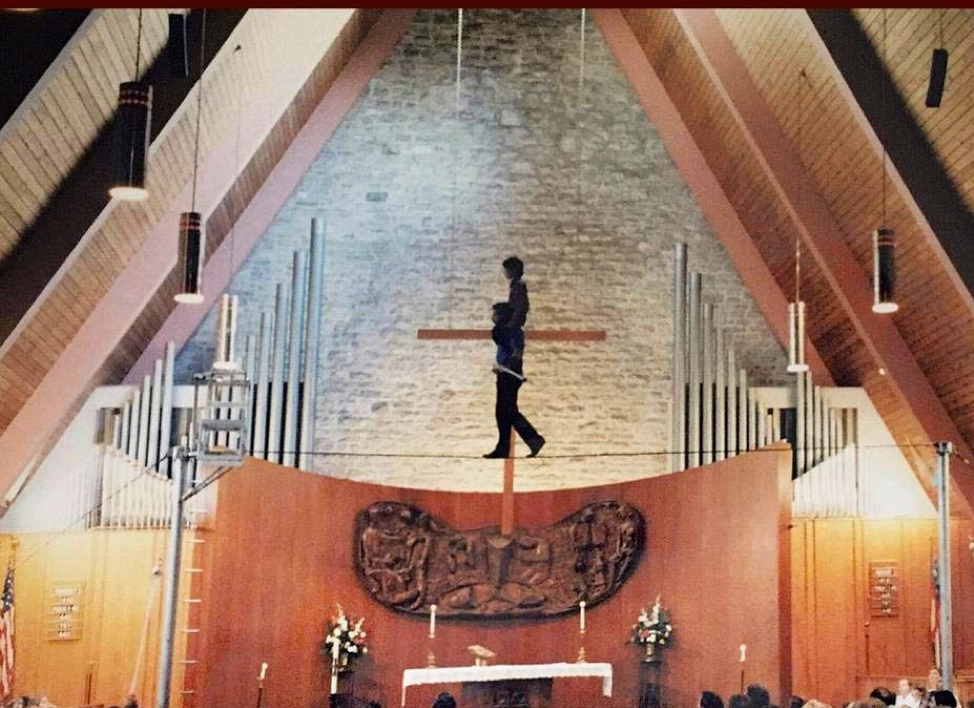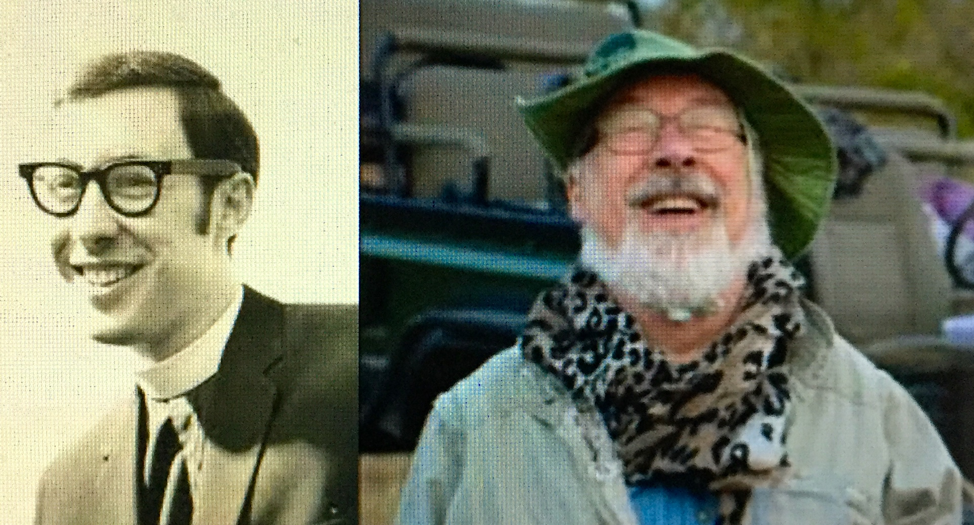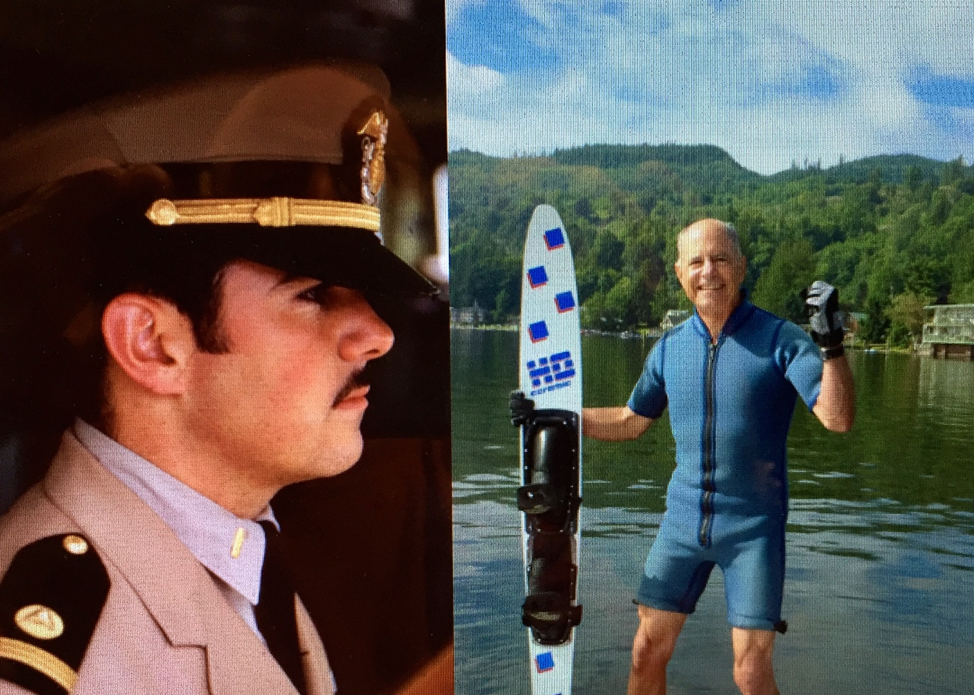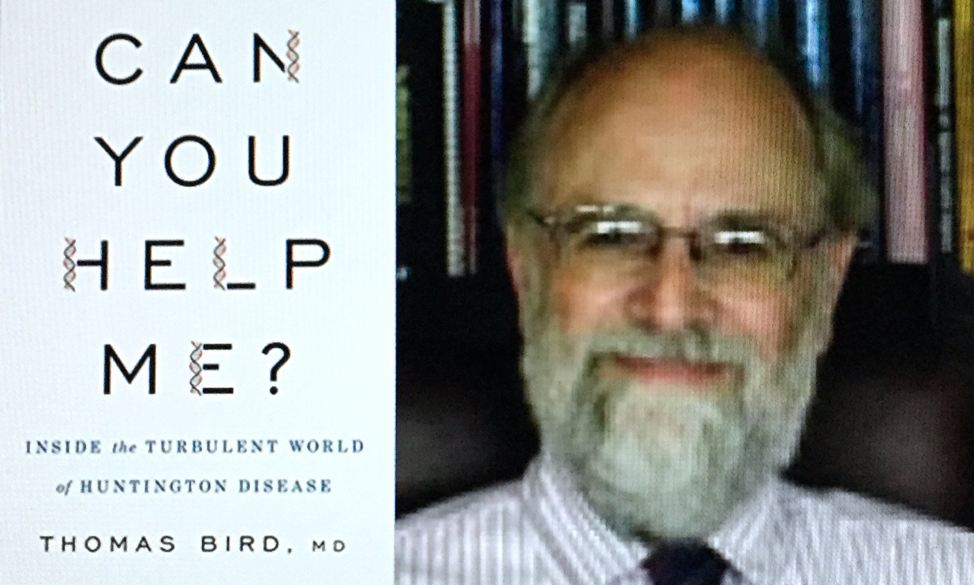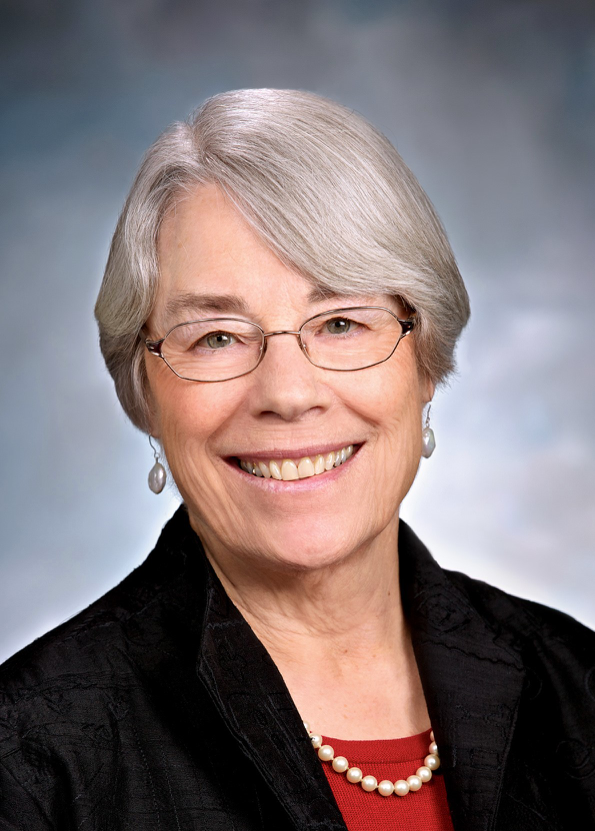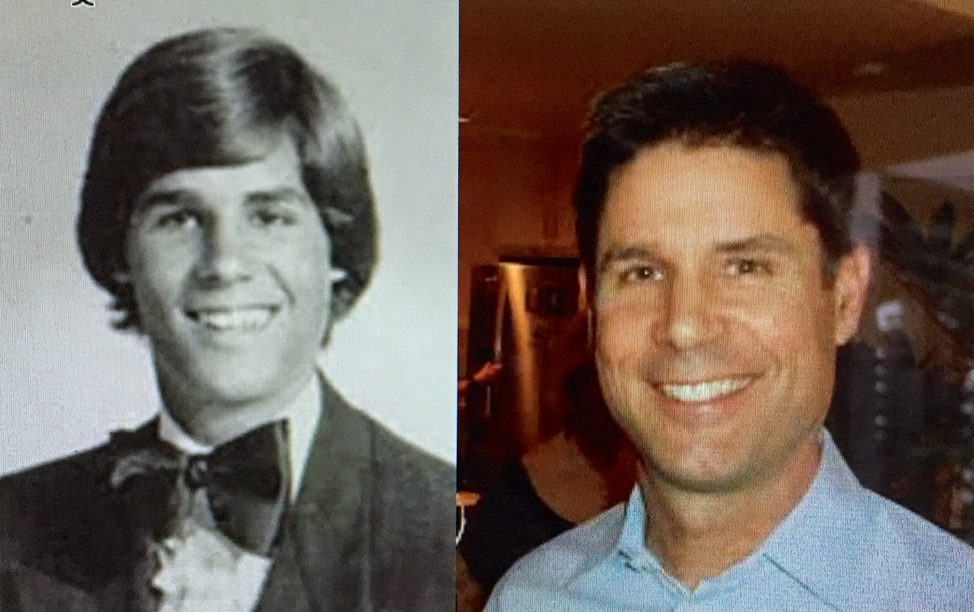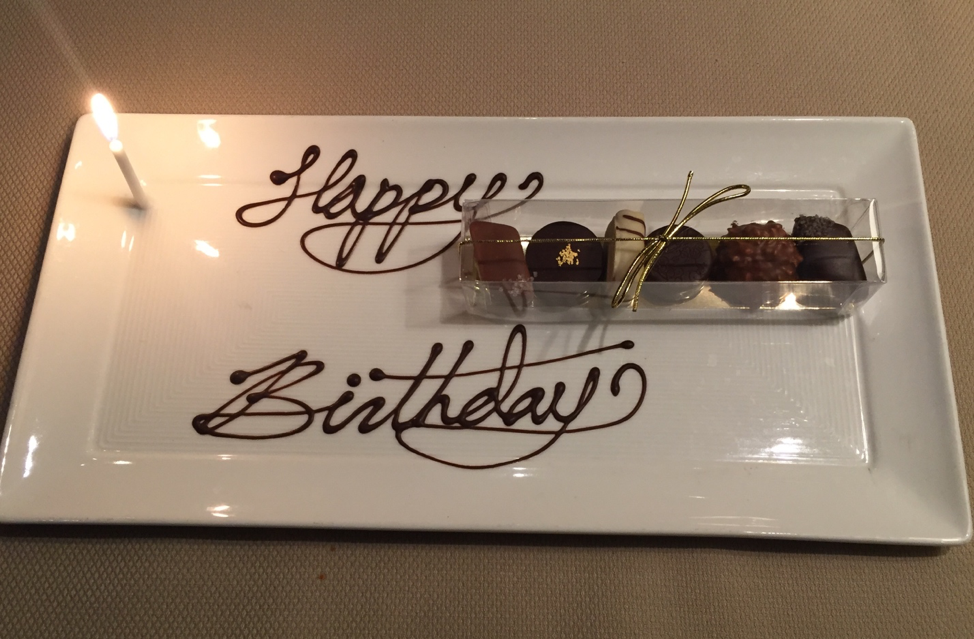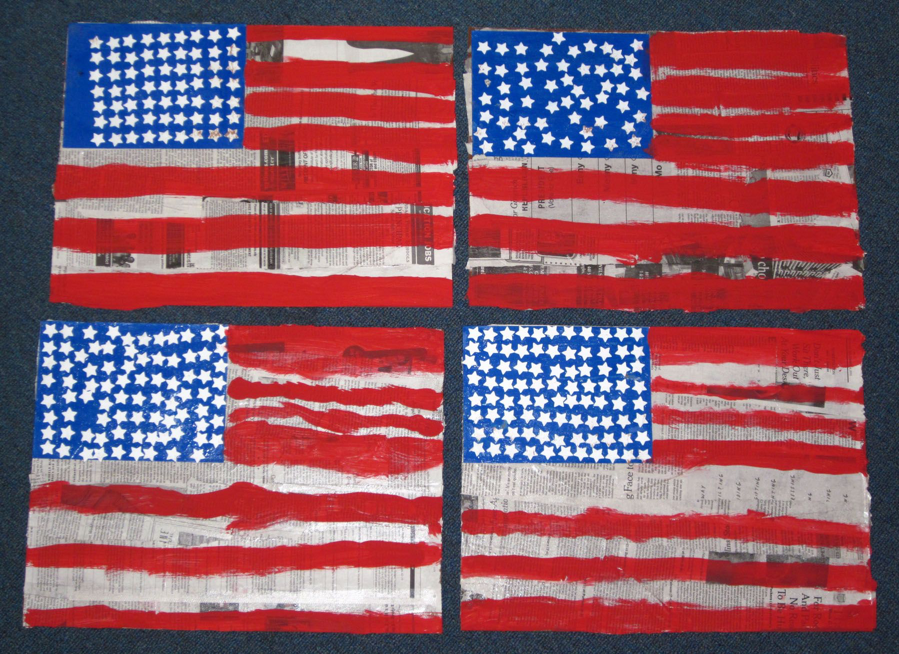
When confronting difficult or unusual situations we are often advised to “think outside the box.” Jasper Johns, the iconic American painter, was thinking outside the box when he broke with tradition and painted these versions of the American flag.
Johns shook up the art world by challenging it to think differently. He was a disrupter. Sometimes art imitates life and sometimes, it seems, life imitates art. Like Jasper Johns, Donald Trump is a disrupter, the Disrupter in Chief, and the ways he has disrupted our government challenges us to think differently about it. My friends may disagree with me, but as contrarian as it sounds, Mr. Trump may be just what we needed to wake us up. From his descent on the escalator at Trump Tower and his remarks about Mexican rapists he has challenged us, begged us, to say “no more.” His presence alone is a provocation.
In just three years as the nation’s chief executive, his actions have taken us so far outside the box that we, and Congress, have stopped thinking in normal categories. We have been thrown outside the box. We need to get back in and think about what kind of America we want. In this remarkable existential moment, with the president impeached and on trial in the US Senate we, the American people, are also on trial. We can no longer dither about transgender bathrooms and kneeling during the national anthem. We have to decide what kind of country we want and who we want included in it. Will we choose Donald Trump’s America, or something more democratic and traditional?
America has never been perfect, but it has re-invented itself many times. We began as a slave nation and were “legally” segregated by race until the Civil Rights Act of 1964. America’s indigenous people were stripped of their land and forcibly relocated to make way for westward expansion. Women were not “granted” the right to vote until passage of the 19th Amendment in 1920. We turned European Jews away when they sought refuge at the beginning of WWII and Japanese Americans, though they were US citizens, were placed in concentration camps and had their property confiscated. Joseph McCarthy and the House Un-American Activities Committee purged the nation’s university and film communities of “free thinking” communists and socialists in the 1950s. We declared war on North Vietnam on the basis of false information in the Gulf of Tonkin, and invaded Iraq on the basis of fabricated intelligence. Under President Trump immigrant children were separated from their families and held in cages.
It’s not a pretty picture, but Americans have always embraced an aspirational myth that provides an alternative to this darkness. In 1931 a historian named James Truslow Adams coined the phrase “American dream” in his history, The Epic of America, and our disenfranchised, our racially and ethnically diverse, and our immigrant strivers have long held on to that dream in spite of our failures along the way. The United States has always been aspirational. Madison, Jefferson and Franklin studied the great philosophers as they drafted the founding documents, and though some were slaveholders they were also dreamers. They were conflicted. They proclaimed equality but counted their slaves as only 3/5 of a person for census purposes.
From the beginning, historians tried to nail down the American experience. Samuel Eliot Morison and Henry Steele Commager held sway when I was a student, but it was Howard Zinn’s A People’s History of the United States published in 1980 that deflowered the myth of the American dream and replaced it with a darker story of entrenched forces and counter movements, of oppressors and oppressed.
Zinn’s history was written in the wake of the Vietnam War when the nation was defeated and its demographics changing rapidly. That period was followed by 9/11, the hunt for Osama Bin Laden, and George W. Bush’s senseless unrelated invasion of Iraq. In spite of this folly, the global economy was humming along until the new economy’s technology-based “paradigm” collapsed and the global economy came undone in 2007. Americans were at war, losing jobs and pensions. They were looking for a silver bullet. They thought they had one when they elected their first black president, but as the economy slowly recovered racism and an uncompromising cadre of Republican Senators stonewalled the new president’s inclusionary vision for the country. There was little agreement on how to unify the American electorate and move forward. The pendulum was swinging, the ground fertile and the situation ripe for a savior.
Enter Donald Trump…
Like lovers on the rebound, and with the help of an archaic electoral system and Russian intervention, the American voters put Donald Trump in the White House in 2016. Ironically, he is the beneficiary of the financial recovery engineered by his predecessor. With the benefit of a great economy and a devoted following he’s been able to maintain weather the storm. He knows how to excite his followers and they know what kind of America they want. It isn’t the America I want.
In her one volume history, These Truths: A History of the United States, Jill Lepore writes about “the case for the nation,” in which she argues that as diverse as we are racially, ethnically, and sociologically, we can find a unified vision for the country. I hope she’s right. I’m counting on it for my children and grandchildren. The alternative, the Donald Trump vision, is too dark to contemplate. We the People… are optimistic, aspirational, generous, and tolerant, but our vision will not prevail unless we find a candidate who can unify us and work with us to bring it about.
I know it’s contrarian, but I’m not surprised Donald Trump was elected. He may be just what we needed to shock us into rethinking our priorities. He has shown me that his vision of and for America is one I don’t recognize or accept. We can do better. That, with all due respect to Jasper Johns, is how I think about it from inside the box.
